Case Study 10: Jobs for You - Employment Agency Ethical Analysis
VerifiedAdded on 2021/06/16
|5
|920
|41
Case Study
AI Summary
This case study centers on Stella, a recruitment manager at an employment agency grappling with ethical and privacy concerns regarding employee records. The agency maintains diary notes, and employees are requesting access to their records, raising management's concerns about potential legal repercussions from potentially discriminatory or false claims. The management instructs Stella to devise a coding system to protect the agency. The student's analysis emphasizes Stella's ethical responsibilities, highlighting the importance of honesty, transparency, and the primacy of public interest. Stella is advised to reject the coding system, advocating for open and honest record-keeping practices that allow employees to review and correct information, thereby promoting ethical conduct and professional standards. The analysis references various sources to support its arguments and emphasizes the importance of ethical decision-making in leadership and recruitment.
1 out of 5
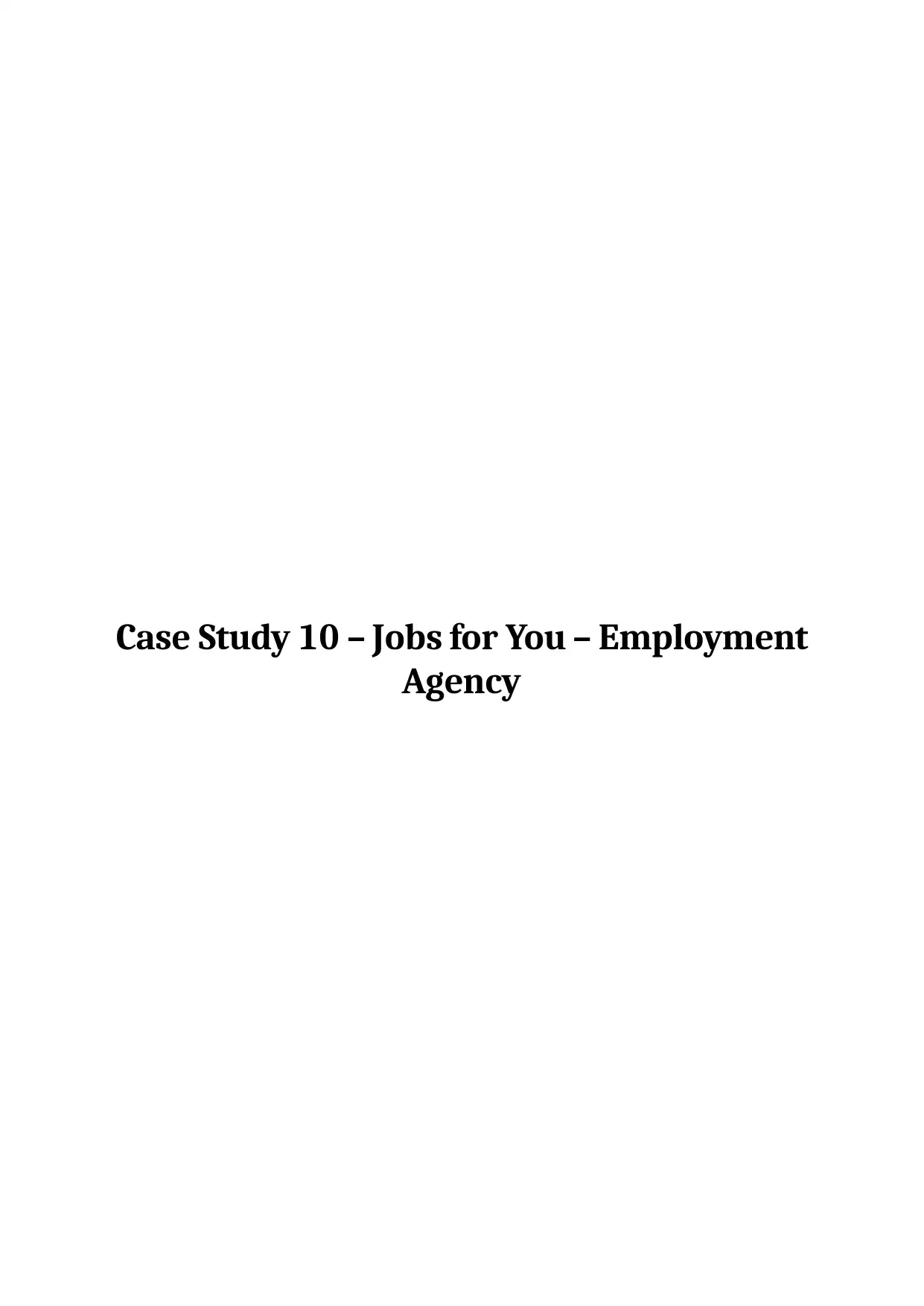
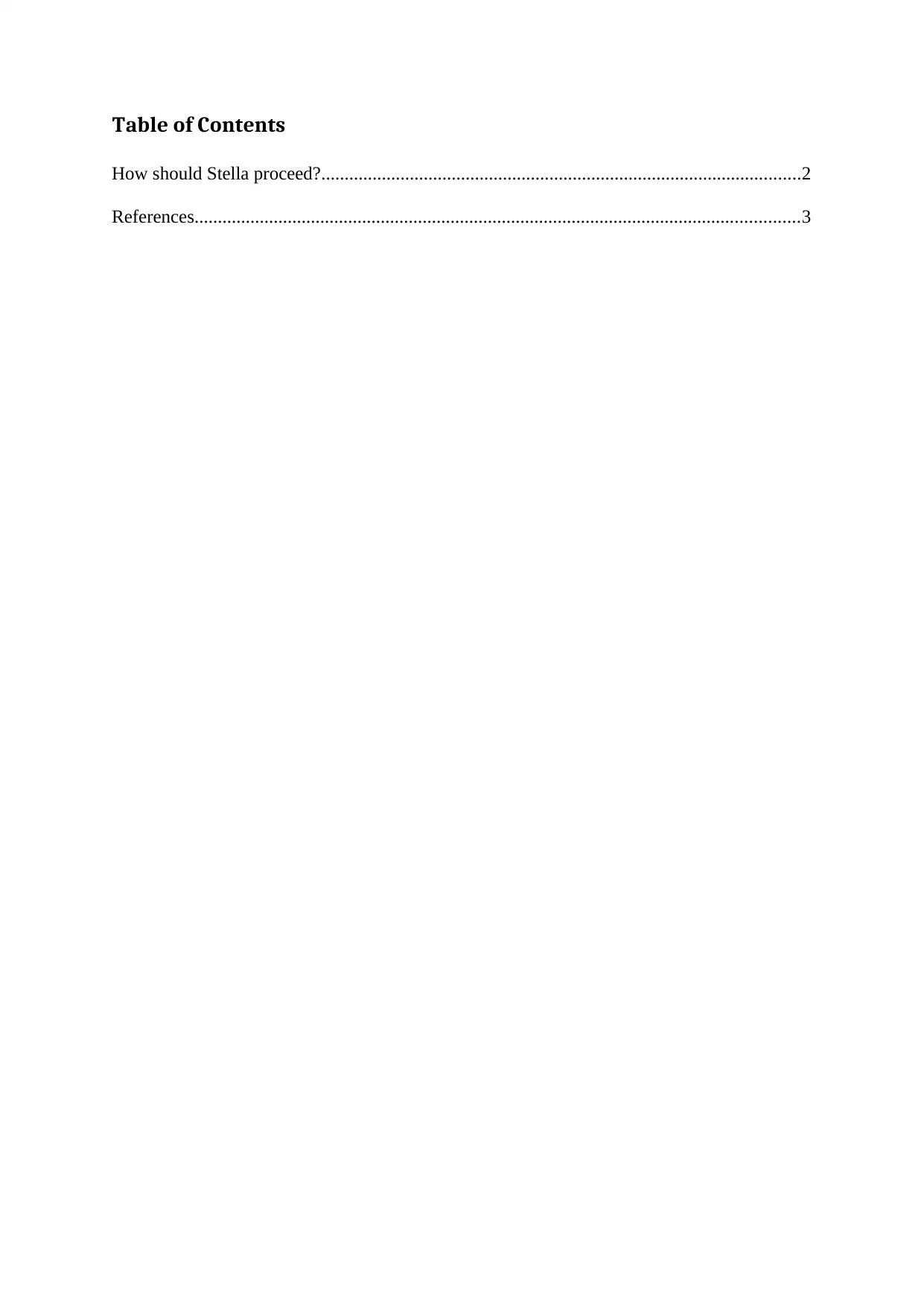
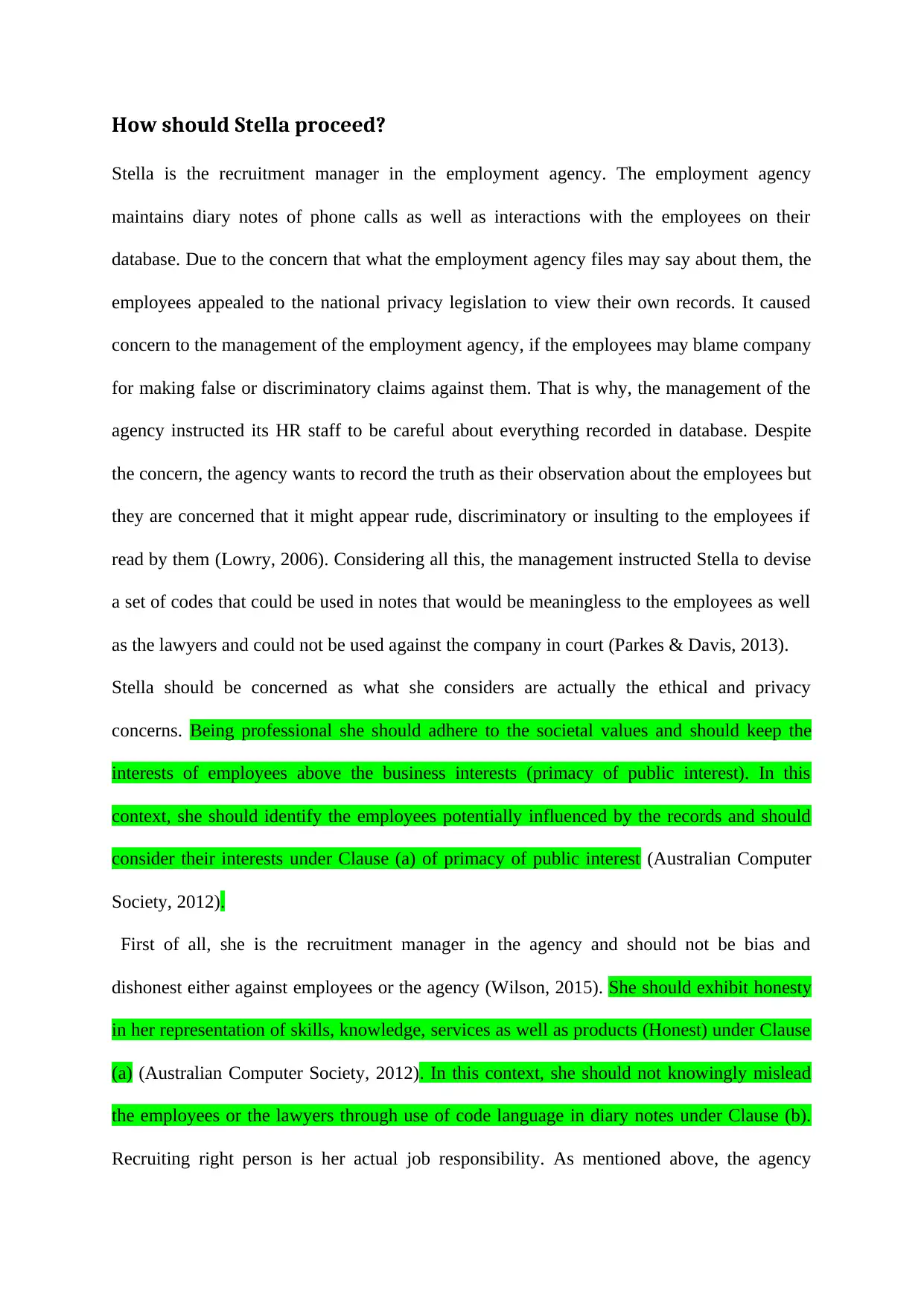

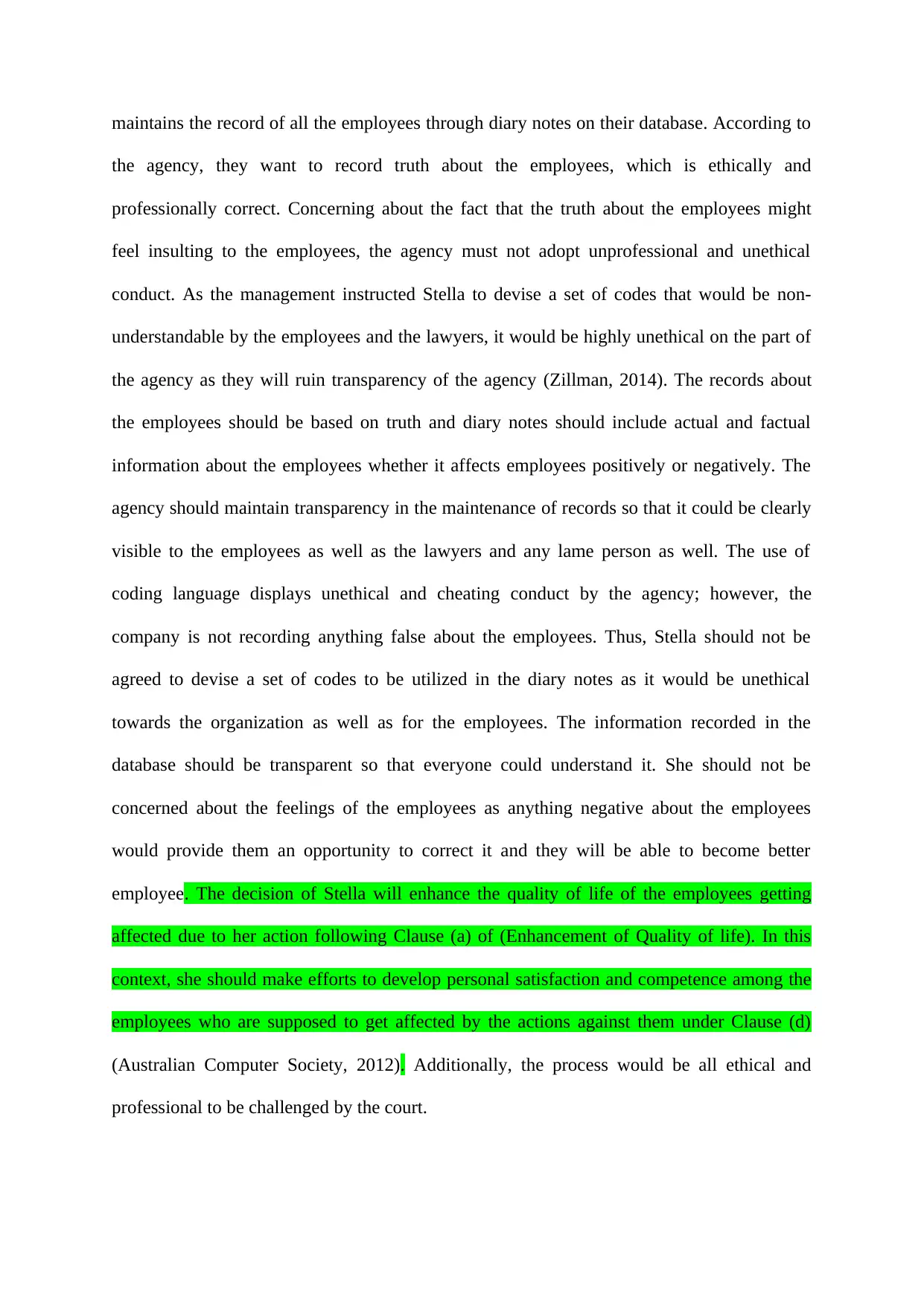
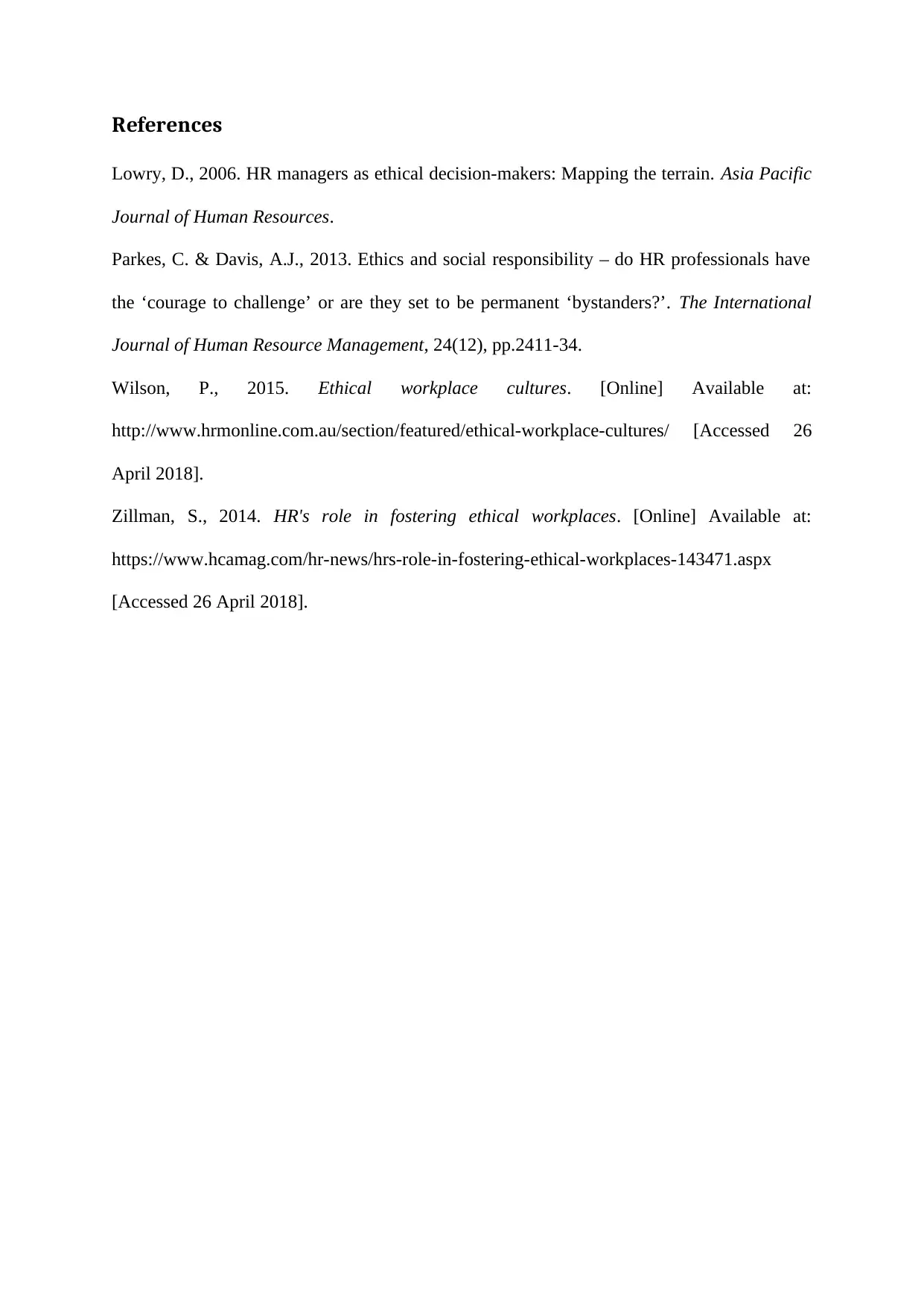





![[object Object]](/_next/static/media/star-bottom.7253800d.svg)